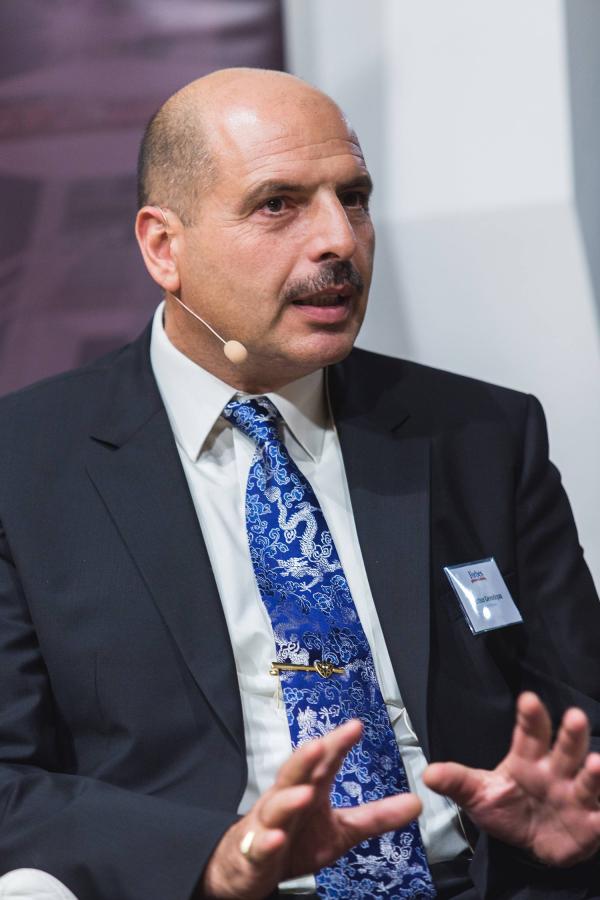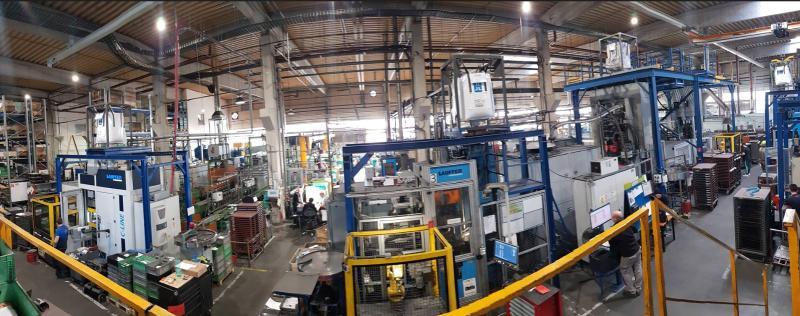Small Slovak high tech business success story started with a small amount and EU help
Artur Gevorkyan doesn’t have pleasant memories from the early stages of his business, which makes special moulds and parts for car companies, the aerospace industry, hospitals and other fields.
“I remember driving once and bawling because I didn't know what to send home to my parents and sons,” he says. “I would compare those first years to walking over an abyss on a beam, where it is important not to look down."
Visiting a trade fair in Slovakia to find customers in those early days, Gevorkyan couldn’t even find a hotel room in the area, so he walked around and then stayed on the street. "Once I came to a church where there was a service,” he says, “and the pastor said, ‘Knock and it will be opened to you.’ This touched me. As if the priest was saying it for me.” When he returned home, he asked one of his employees to call all the phone numbers of financial leasing firms he had found in an industry magazine to try to get help buying more equipment. This was one of his ways of knocking. “There was nothing to lose," he recalls.
Finally, he got in touch with Société Générale Equipment Finance (SGEF), which has offices in Czechia and Slovakia. SGEF provides leasing and financing to manufacturers for equipment and other production needs. In June 2020, the European Investment Bank signed a so-called intermediated financing loan of €70 million with SGEF, which allows the firm to offer loans to growing young companies in Slovakia and Czechia. SGEF believed in Gevorkyan and helped his company get the financial assistance and advice it needed to grow, allocating a total of €2.8 million of the EU bank’s financing to Gevorkyan since the middle of 2020.

Artur Gevorkyan
“Slovakia is a very small country,” says Gevorkyan, a former military aircraft designer. “Imagine how the name European Investment Bank sounds to someone who has a small company with 10 people. Nobody dares to knock.”
Which is why it’s good that the European Investment Bank makes intermediated loans to local institutions that, in turn, lend to companies like Gevorkyan, which might not consider knocking on the door of a big EU operation.
Gevorkyan now has 190 employees, and he says the key was working with the right partners who believe in small companies.
A story of growth in Slovak high tech
He started in the metallurgy business about three decades ago when he was looking for something new to do with his engineering background. He built his first metallurgical plant in 1991 in Ukraine. Five years later, he moved the company to Slovakia and built the new factory that today is involved in powder metallurgy, injection moulding of materials using metals and plastics, and 3D printing.
Gevorkyan started with just a small amount of money, but last year, the company became the first Slovakian firm to join the PX Start part of the Prague Stock Exchange dedicated to small and medium-sized companies. Today, the company, located in Vlkanová in central Slovakia, makes regular new investments and is expanding its work.
Filling a need for efficiency
Today, the company’s technology in powder metallurgy is the “essence of Industry 4.0," Gevorkyan says. "With the help of software and programs, we can invent materials and design the shapes of parts and products, the chemical composition of materials, and then mix and manufacture them." The greatest demand for the company’s products is in the automotive industry, where there is a big need for efficiency, accuracy and speed.
Gevorkyan financed new presses for the metal powders through SGEF. The new presses use less energy and work three times as fast as the old ones. Gevorkyan also invested in automation and robotics with this financing.
What is powder metallurgy?
Powder metallurgy is the process of pressing fine metal powders and heating them to form new metal objects. Powder metallurgy produces little scrap metal compared to steel foundries and consumes less energy.
When asked why the European Investment Bank should support small business in Slovakia, Gevorkyan has a ready answer. “When you support small and medium enterprises,” he says, “they will one day become large enterprises. There is no other way."

Gevorkyan’s development department employs 17 engineers who develop more than 150 new products per year. It also collaborates with the Slovak Academy of Sciences and the University of Cambridge;
Small and medium businesses make up 99.9% of Slovak companies. They generate 73.3% of employment in the country. The European Investment Bank helps small businesses because they often have a hard time getting loans in their early stages and because they are the backbone of the economy everywhere.
In 2022, the EIB Group provided more than €16.35 billion for small and medium-sized businesses. To support small businesses, the EIB Group signs deals with a wide network of commercial banks, state development banks, leasing companies, venture capital firms and private equity funds. The Group especially targets regions where the difficulty in finding loans is hurting the economy.
All companies need to do is knock
